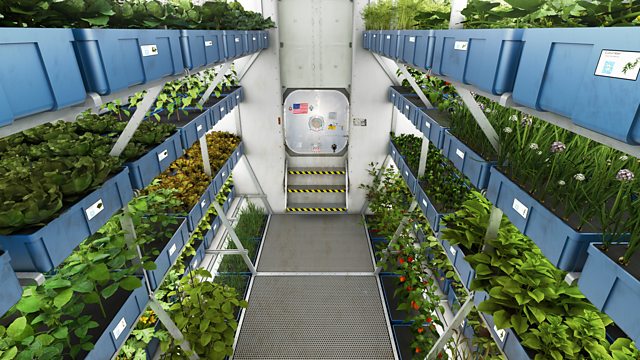An Ecological Age
Professor Rachel Armstrong describes an ecological approach to space exploration and her vision for a living spacecraft.
In this series, Another Giant Leap, our essayists consider how humans might evolve into a cosmic civilisation. As we boldly go where no-one has gone before, what are the challenges we are likely to encounter along the way?
In this third essay, Professor of Experimental Architecture at Newcastle University, Rachel Armstrong, explores the possibilities of building organic starships and establishing ecosystems on alien worlds.
Rachel works on the design and engineering of ecosystems on Earth. She is applying the same approach to a concept design for a future habitable starship.
Living in space is already a daily reality. In fact the International Space Station - in orbit 400 kilometres above the Earth - has been continuously occupied for more than 15 years. The astronauts on board, however, rely on supplies from Earth to feed themselves.
A recent attempt to grow just a few leaves of lettuce has not been entirely successful. Neither have past efforts to create self-sustaining biospheres on Earth. How then are we going to feed ourselves on alien worlds?
Rachel suggests we need to rethink spacecraft design and build organic vessels that live and breath around us. She is working on a starship concept called Persephone, which would be quite unlike the futuristic ships of science fiction.
Rachel argues that the lessons learnt in designing spacecraft for living in space can also be applied to make life better for us all back on Earth.
Producer: Richard Hollingham
A Boffin Media production for 大象传媒 Radio 3.
Last on
More episodes
Previous
Next
Broadcast
- Wed 10 Feb 2016 22:45大象传媒 Radio 3

